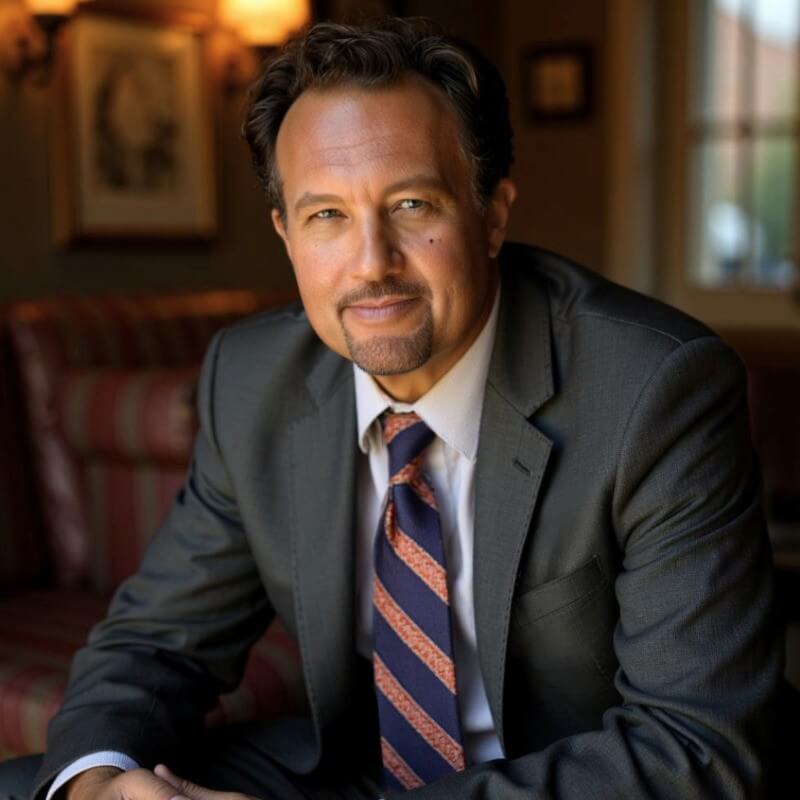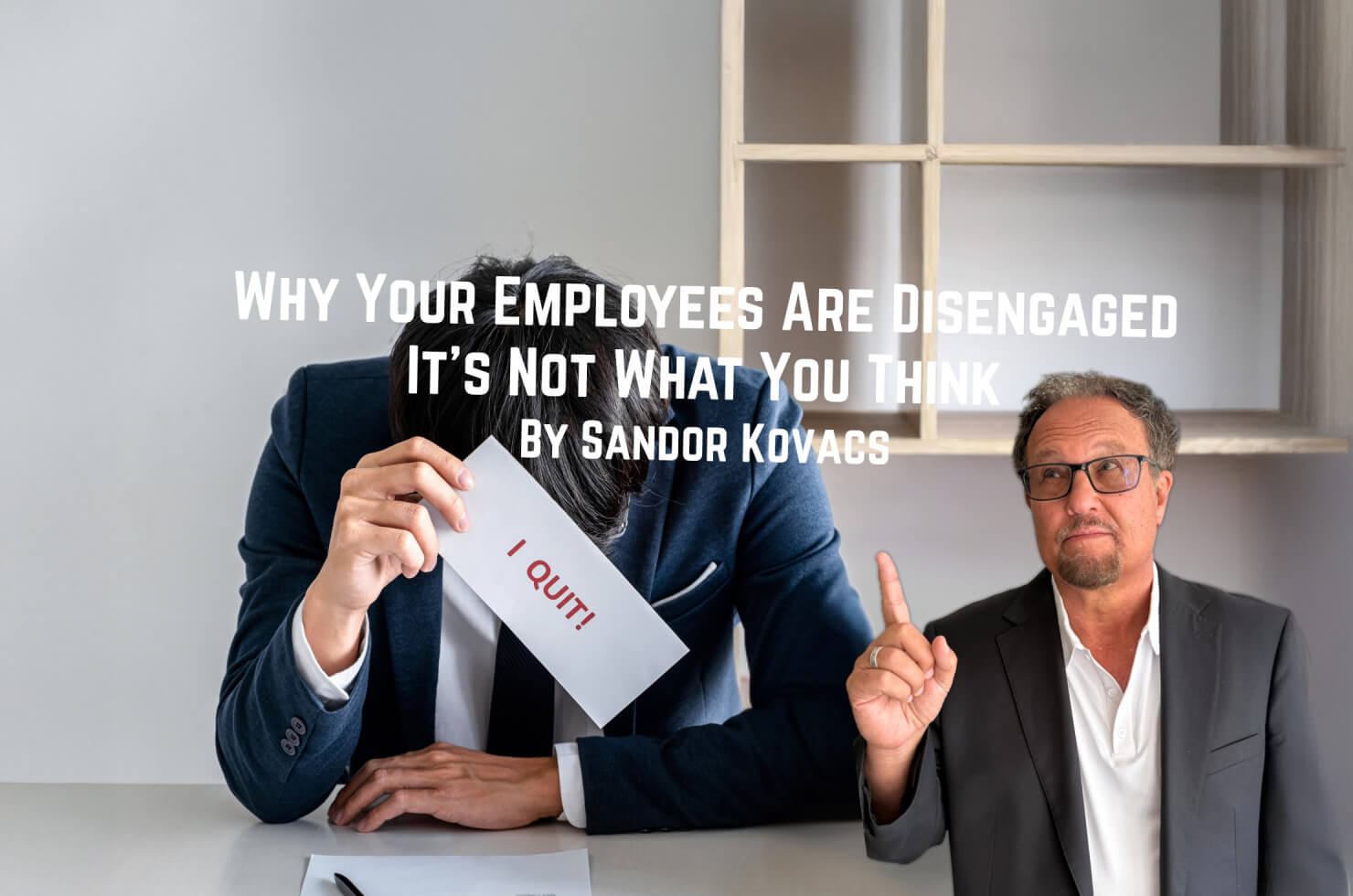Written by Sandor Kovacs: CEO and Co-Founder of DorWay™
Global engagement is collapsing. Gallup’s latest 2025 data shows:
- Global employee engagement dropped to 21%, only the second decline since 2009.
- Manager engagement fell to 27%.
- The U.S. hit a 10-year low, with 3.2 million fewer employees feeling enthusiastic about their work.
- Only 37% of employees strongly agree they’re treated with respect.
- 42% of turnover is preventable, yet organizations consistently fail to address it.
- Meanwhile, less than 30% of projects complete on time and on budget.
But why is this really happening?
It’s not because of compensation, perks, remote work, or even “bad bosses.” Those are the surface excuses that keep people comfortable and distracted from the facts.
The Bottom Line Most are Ignoring
The rigorous fact?
At its core, this global crisis of disengagement is caused by a lack of meaningful ownership and commitment.
If you are thinking, “I know that.”
It still happening on your watch.
People are disengaged, whether they are frontline employees, middle managers, or executives, because:
- They do not see themselves as the cause of anything important or meaningful.
- They do not experience their work as a personal stand tied to something bigger than themselves. A weak purpose driven by dismal leadership.
- They operate inside a context of compliance, doing things because they should, have to, or get paid to, not because they choose to.
- Their way of being is reactive, dictated by circumstances, moods, or other people’s opinions, instead of anchored in a conscious declaration of who they are and what they’re committed to.
Many People Live Their Lives and Do Their Jobs Based on Reasons, Not From a True Choice
Put differently: Most people, most of the time, are running their lives and careers by reasons, not by freely made choices.
They weigh, justify, and decide based on what to avoid or protect, killing off possibilities in the name of being “practical.” They almost never stand in a choice that exists independent of reasons.
I see and hear this when I am coaching or training employees and people in leadership roles:
They justify. They explain. They defend. They wait for conditions to improve. They let the past or outside circumstances dictate how engaged they are, or whether they engage at all.
So, what happens when you have a workforce, at any level, that:
• Confuses who they are with their results (so if results drop, they see themselves as failures and withdraw)? • Waits for the environment to change instead of being the one who changes it? • Looks for evidence to feel good rather than standing in a self-authored commitment?
You end up with exactly what Gallup reports:
Low engagement. Low accountability. Low energy. High turnover.
The Cost of Not Standing in Ownership and Accountability
Disengagement exists because people are not standing in ownership. They do not see themselves as the source of what happens.
This is why they hesitate. Why they burn out. Why they quit, physically or mentally, even while staying on your payroll.
It’s why less than a third of projects globally complete on time and on budget. Why teams drift into mediocrity and complacency. Why managers hide in busywork. And why entire cultures settle for just getting by.
This is not a compensation issue. It is a consciousness issue. It is the inability to be straight about the fact: no one is coming to save you, regardless of your job description or skill level.
What Accountability Actually Means
So many organizations pay lip service to accountability. They turn it into a scoreboard, a carrot-and-stick game, or a monthly review ritual.
That is not accountability. That is oversight masquerading as accountability.
Accountability is the opportunity to be cause in the matter of your life, your leadership, and your results.
It means being the sole primary factor. You are it. You own all of it, the good, the bad, and the ugly, regardless of circumstances or the situation you’re in. Complaining is a thing of the past.
Accountability carries a power, a force, a drive that compels a person to love their life, not because circumstances are perfect, but because they are the one generating their future regardless of circumstances.
Why This Is The Stand at DorWay™
This is why DorWay™ does not just teach leadership skills. We develop people to be leaders and to practice leadership effectively in any situation or circumstance.
We train people to reclaim and remember that innate power, to choose, to declare, to be the source of their work, their teams, and the future they want to create.
Because until a person stands in ownership, not reasons, not excuses, not moods, nothing changes.
A past mentor of mine, Jack Schropp, Commander of the Navy SEALs, once said:
“Commitment is going beyond any justification to quit. You are either a victim or a volunteer. Commitment is always stepping into the unknown. The future is never what you expect, so how can you know what your commitment will hold?” From Jack’s book: Unbeatable: Recreate your life as extraordinary using the secrets of the Navy Seals.
Those words set me on a lifelong course of being 100% accountable and responsible for the experiences in my life — and for everything I chose.
Are We Really Serving People?
And that leads to this question, one that most leaders, managers, and even peers rarely ask themselves:
Are we actually serving the people we work with, the employees who devote their hours, their energy, their lives, when we allow them, and ourselves, to keep buying into justifications, reasons, and excuses?
Are we serving them when we let them drift through work never knowing what it feels like to stand 100% responsible and accountable for the experiences and choices they make?
The answer is no.
I have experienced time and time again, the greatest act of love, the deepest compassion you can offer another human being, is to stand for their greatness, not bend the knee to their complacency, their mediocrity, their victimhood.
It is to stand for people being great, even when they resist it. Especially when they resist it.
You are often the line of demarcation between the people you lead finding meaning in their work, loving their lives, the people they engage with and choosing to pursue a purpose bigger than they know themselves to be.
Execution Challenge: This Is Where It Starts
If you want to disrupt disengagement, in yourself, your team, or your company, start here:
• Stop buying into your and other’s reasons. Catch yourself when you say, “I can’t because…” or “That’s just how it is.” Rewrite it: “I choose not to.” Then ask why.
• Declare who you are being now and now, again and again. Say it out loud. Pick one commitment today that transcends circumstances. Say it. Write it. Be accountable for it, regardless of how you feel.
• Ask your team where they’re operating from compliance vs. choice. Have one rigorous conversation this week. Not about KPIs. About ownership. About who they are being.
• Audit your last three meetings. Were you the cause of alignment, energy, and momentum, or were you waiting for it? Adjust how you show up.
• Replace “should” with choices. Stop saying, “We should do X.” Start saying, “We choose to do X because we’re committed to Y.” That small shift changes everything.
• If what you’re reading here hits home, for you, your department, or your company, take it as your wake-up call. Commit to learning what real accountability and responsibility look like. Commit to learning and mastering the difference between making choices versus living based on reasons.
Final Word
Because disengagement doesn’t change by hoping for better attitudes. It changes when people see themselves as the source, and act from that stand, no matter the conditions. So, start there. Decide who you are being, what you are cause in, and refuse to wait for circumstances to improve. That’s leadership. And that’s how you obliterate disengagement from the inside out.
All documents © 2023-2025 DorWay™ All Rights Reserved Worldwide

